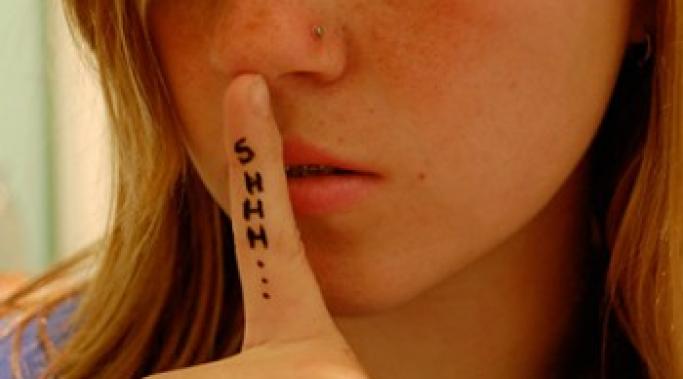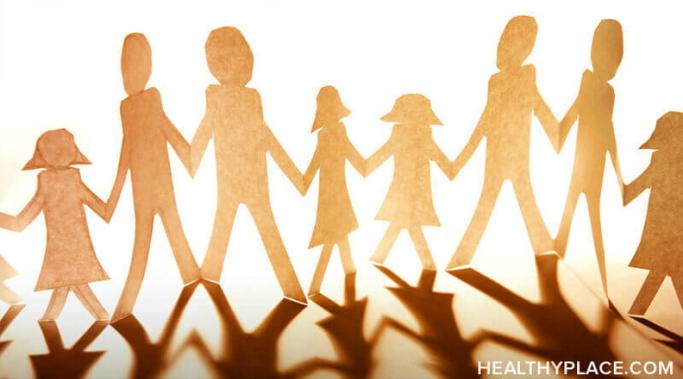Blogs
It took four hours to admit my 15-year-old son, Bob, to the psychiatric hospital for suicidal ideation. It had been a long stressful day since Bob told his therapist he almost killed himself the night before. She had made Bob sign a safety contract then released him to me. I tried to keep him busy and distracted, but by late afternoon he could fight no more. Bob asked me to take him to the hospital.
We all struggle with insecurities and maintaining confidence. Even the most confident individual feels flawed and anxious from time to time. It’s difficult to constantly look in the mirror and tell yourself how beautiful you are without finding something to bring you down. For those who have self-harm scars marking their skin, it can be more than difficult to accept the person you are and to see the strengths you hold.
When my brother was little, he went to school one day, climbed on top of his desk, and screamed. He didn't say anything. He just screamed. Nobody asked him why. When he ran away from home a few years later, the pastor of our church came over, witnessed my father's performance as a remorseful parent, and didn't concern himself with what exactly my father had to feel so regretful about. When I was six, my mother took me to a doctor – one of my father's colleagues – who asked her what had happened to make me bleed. I don't remember what she told him. All I know is that it wasn't the truth. She didn't know the truth. Only I and my father did. And no one asked me. Of course, by then I already had dissociative identity disorder (DID). Who knows what I would've said if they'd asked.
Recognize other ways of dealing with stressful situations in order to avoid drinking or using your substance of choice.
A few years ago I attended an information session on depression and heard one of the greatest pieces of advice about depression treatment I've ever heard. The therapist said, "No single person or treatment is going to help you get better. It takes a variety of treatments to get you better."
Does anxiety about family gatherings ruin celebrations and holidays with your family? “My anxiety is spiraling out of control. I’m supposed to go to a family get-together this weekend, and I’ve had panic attacks just thinking about it. I don’t do well at these family things. I don’t think I can do it.” If this lament sounds familiar, you’re not alone. Over the years, I’ve heard this sentiment expressed more times than I can count. There are reasons that family time can exacerbate anxiety. There are also things that can be done to minimize anxiety during these times.
When seasons change, so do our bodies. Our bodies become shocked when temperatures go from sunny and warm to windy and cool and it often takes a toll on our physical and mental wellbeing. Sometimes allergies tend to act up and skin goes from being soft and tan to blotchy and dry, and the flu begins it's season. Along with physical health issues, our mental health takes a toll as well when seasons change.
A few days ago, I had a panic attack and I can safely say it is the worst one I have ever had. Panic attacks and anxiety, in general, are nothing new. A couple times a month, I will succumb to the anxiety that builds inside me. There are also anxiety triggers that hang over my head and surprise me from time-to-time. But the room spinning, fight or flight, lose consciousness type of panic attacks I thought were long in the rearview mirror. It's good to know, even after all these years, anxiety can still surprise me.
Do you ever have days when you swear people are acting hostile, rude, or just downright weird? I'm a cashier at a grocery store, so I see all kinds of social behavior "in the wild," so to speak. And yes, I'm aware that my anxiety can warp my perception of other people, but that can't completely explain how some people act on occasion.
Have you ever heard someone say: “It doesn’t matter what your sexuality or gender is! Why label yourself?” Didn’t it feel uncomfortable and kind of, well, wrong? While I do see the implied positivity in those words, I can’t help but frown at the mere mention of them. As someone who identifies as pansexual, I find it offensive. Usually, people who are not lesbian, gay, bisexual, or questioning (LGBTQ) would say something like this. Most often, they are people who are straight or cisgender (someone whose sex matches their gender). Personally, I believe that identifying as LGBTQ is extremely important because it makes us visible rather than invisible. When we decide to come out of the shadows and embrace our true identity, it often has a positive, rewarding effect on our mental health.










I believe she will only be able to rid herself of her demons, and hopefully her BPD as well, when she's ready to confront the abuse of her father. If she can put the blame where it belongs, she may stop projecting that victim/perpetrator cycle on the present men in her life. These demons are a metaphor for the purgatory she has created for herself. That reality has consequences in the real world, but it need not be real in the tangible sense. Exorcising her demons will require the expenditure of real physical energy and probably the destruction of aspects of her personality. If this ever happens, and it's possible but not probable, then these demons will evaporate. They are only as real as one's personality is real. In short, reality is not the question, it's what you make of the things you feel to be real.